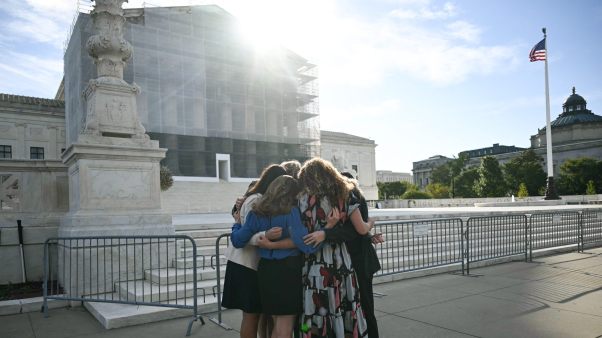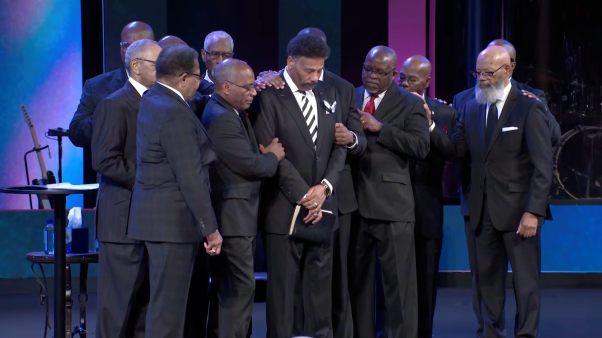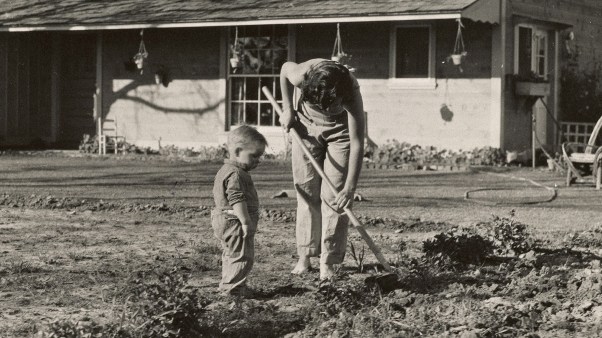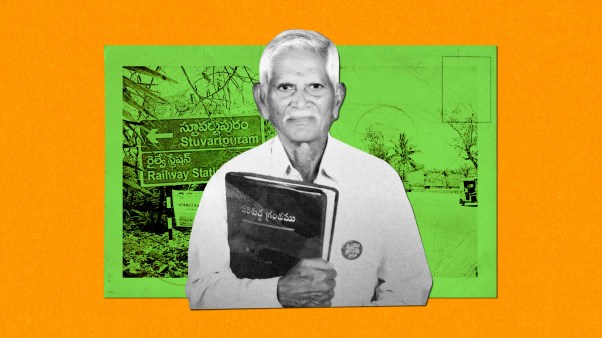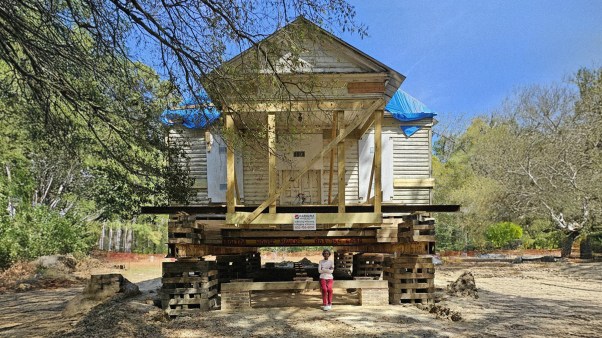Jeff Wyers knew four months living as a Puritan in a 1620s-style Massachusetts colony would be hard. He didn’t expect his faith to be so challenged.
Wyers, real-life pastor of Community Baptist Church near Waco, Texas, became “governor” of the colony in Colonial House, PBS’s version of “reality TV” that aired in May. Wyers, his family, and about 20 others volunteered to live as four households of freemen and indentured servants in the show that challenged modern prejudices and historical mores.
As a functioning colony, participants agreed to live as they would have 400 years ago—including milking goats and raising corn, producing goods to repay their British backers, submitting to male headship, and mandatory attendance at three-hour church services.
As governor of the colony, Wyers had responsibility to enforce civil laws. He also had a personal, spiritual mission: to understand the Puritans who hoped to create a “City on a Hill” in the new land. But he experienced the same problems the Puritans did when he tried to get non-Christians to live like Puritans.
Leadership Weekly: As governor you had to enforce religious rules through civil law. How did that work?
Jeff Wyers: The people signed contracts. The non-believers said they had been told [by the production company] that they should go to church for a while, but if it became too heavy, there’d be a way out. There wasn’t. If I had done nothing, I’d shoot down the whole premise of the show.
I told the colonists I am a Baptist: “I believe in freedom of religion, I don’t believe in state oppression, and I’m not coming on this show to be the person that pushes persecution. But the law says—the law we agreed to and the law they had in [1628] said—you went to church or it was treason. And so, if we don’t do this, we’re not being colonial at all, we’re just on a camping trip. What’s the point?” To their credit, even the most adamant atheists said, “We understand.”
LW: Passing out scarlet letters and confining law-breakers didn’t make you a popular guy.
Wyers: Everybody knew in advance what the punishments would be. But I tell you, when it came time that they were doled out, it was serious. You can sense it on the show. It becomes a real issue.
LW: What did you learn about forcing people to act religiously?
Wyers: You can’t force people who don’t have faith to believe by putting a knife to their throat. You may get acquiescence, but you’re not going to get faith. Faith is something God does, and a person responds to. With persecution you get the exact opposite. Instead of people listening to the nudging of the Holy Spirit, they focus on pressure from this other human being.
We had people who had been warming to the gospel that suddenly were standing flatfooted and saying, “You’re not pushing me any farther.” Persecution brings the wrong results. It works against the spirit of the gospel.
LW: Were you able to find a way to minister, despite that?
Wyers: As the governor, I was the heavy, but as people, [my family was] able to minister just by being real and loving. The Lord led person after person to us. They would come and say, “Tell me about your faith.” I’m very evangelical, but [God] didn’t want me doing street corner evangelism, but by being there and living among them, and being open to share.
LW: Do you think it was easier in that small community to live as a Christian witness?
Wyers: In some senses it was, because the community was so tight. That allowed some real deep interpersonal interaction, which our society has a whole lot less of. There it was eat together, sleep together, suffer together, bleed together, freeze together. The opportunities for interchange were greater.
Interviewed by Rob Moll, assistant editor for ChristianityToday.com
To respond to this newsletter. Write to Newsletter@LeadershipJournal.net.
Copyright © 2004 by the author or Christianity Today/Leadership Journal.Click herefor reprint information on Leadership Journal.

